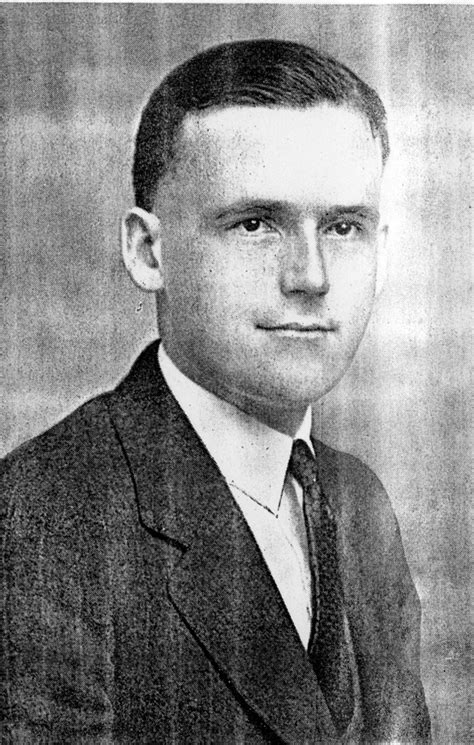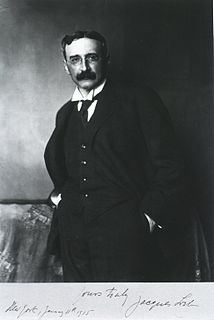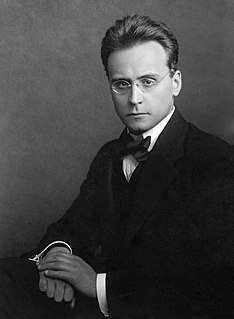A Quote by Claude Bernard
The physiologist is not a man of the world, he is a scientist, a man caught and absorbed by a scientific idea that he pursues; he no longer hears the cries of the animals, no longer sees the flowing blood, he sees only his idea: organisms that hide from him problems that he wants to discover. He doesn't feel that he is in a horrible carnage; under the influence of a scientific idea, he pursues with delight a nervous filament inside stinking and livid flesh that for any other person would be an object of disgust and horror.
Related Quotes
There is a fundamental moral difference between a man who sees his self-interest in production and a man who sees it in robbery. The evil of a robber does not lie in the fact that he pursues his own interests, but in what he regards as to his own interest; not in the fact that he pursues his values, but in what he chose to value; not in the fact that he wants to live, but in the fact that he wants to live on a subhuman level.
I must admit that any favorable mention of the flying saucers by a scientist amounts to extreme heresy and places the one making the statement in danger of excommunication by the scientific theocracy. Nevertheless, in recent years I have investigated the story of the unidentified flying object (UFO), and I am no longer able to dismiss the idea lightly.
Man is a megalomaniac among animals-if he sees mountains he will try to imitate them by pyramids, and if he sees some grand process like evolution, and thinks it would be at all possible for him to be in on that game, he would irreverently have to have his whack at that too. That daring megalomania of his-has it not brought him to his present place?
The history of scientific and technical discovery teaches us that the human race is poor in independent and creative imagination. Even when the external and scientific requirements for the birth of an idea have long been there, it generally needs an external stimulus to make it actually happen; man has, so to speak, to stumble right up against the thing before the idea comes.
Good art means the ability of any one man to pin down in some permanent and intelligible medium a sort of idea of what he sees in Nature that nobody else sees. In other words, to make the other fellow grasp, through skilled selective care in interpretative reproduction or symbolism, some inkling of what only the artist himself could possibly see in the actual objective scene itself.
This is the gist of all worship: to be pure and to do good to others. He who sees Shiva in the poor, in the weak, and in the diseased, really worships Shiva. And if he sees Shiva only in the image, his worship is but preliminary. He who has served and helped one poor man seeing Shiva in him, without thinking of his caste or creed or race or anything, with him Shiva is more pleased than with the man who sees Him only in temples
One could count on one's fingers the number of scientists throughout the world with a general idea of the history and development of their particular science: there is none who is really competent as regards sciences other than his own. As science forms an indivisible whole, one may say that there are no longer, strictly speaking, scientists, but only drudges doing scientific work.
It must be for truth's sake, and not for the sake of its usefulness to humanity, that the scientific man studies Nature. The application of science to the useful arts requires other abilities, other qualities, other tools than his; and therefore I say that the man of science who follows his studies into their practical application is false to his calling. The practical man stands ever ready to take up the work where the scientific man leaves it, and adapt it to the material wants and uses of daily life.
There was an idea that God created man different from other animals, because man was rational and animals had drives and instincts. That idea of a rational man that was specially created went out the window when Darwin showed that we evolved from animal ancestors, that we have instincts, much as do animals, and that our instincts are very important. It was a much more sophisticated, nuanced, and rich view of the human mind.





































